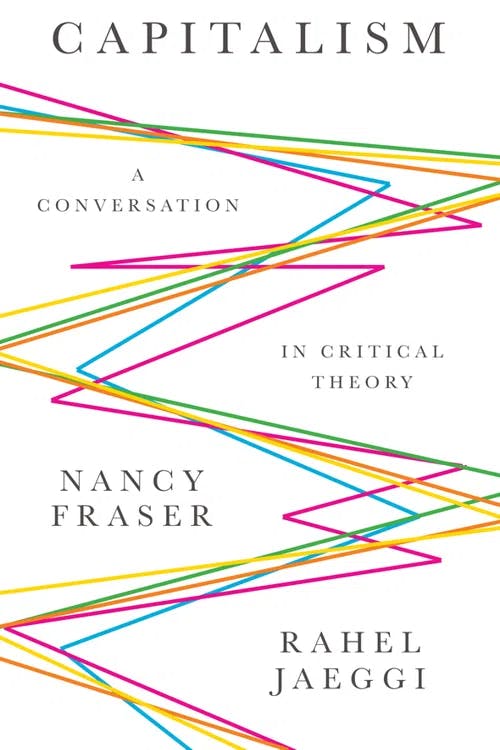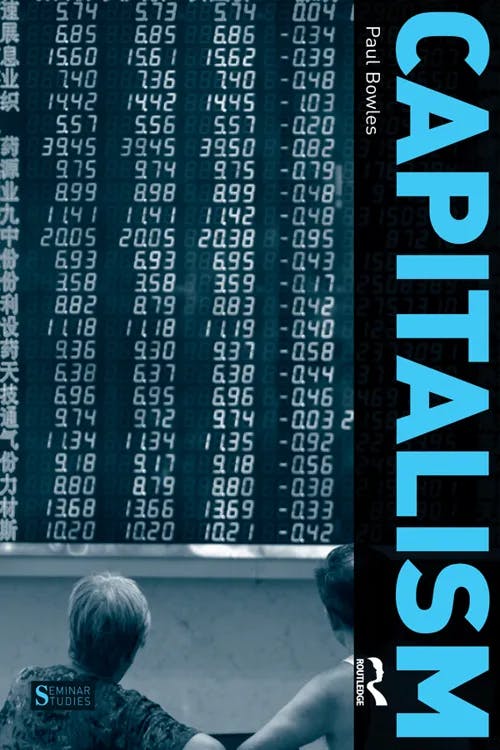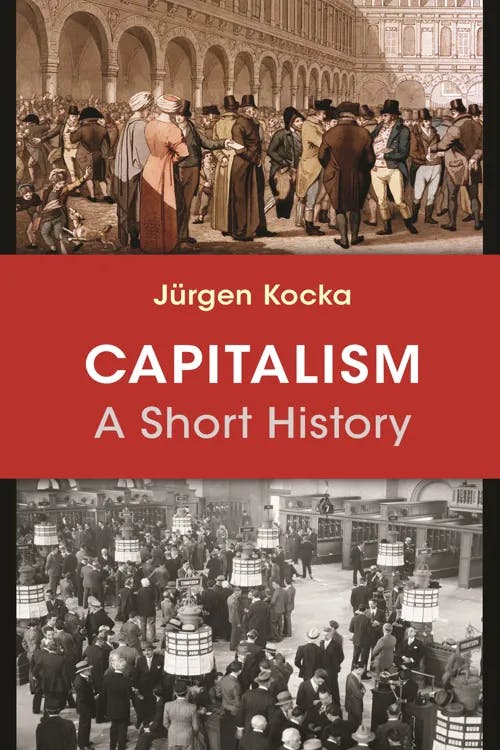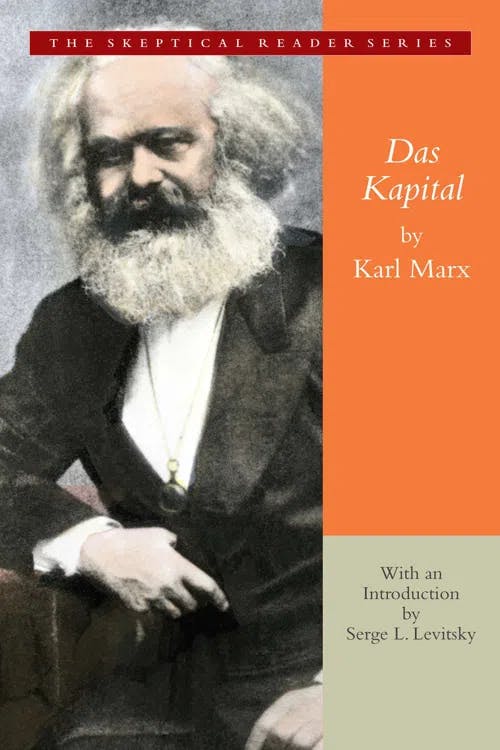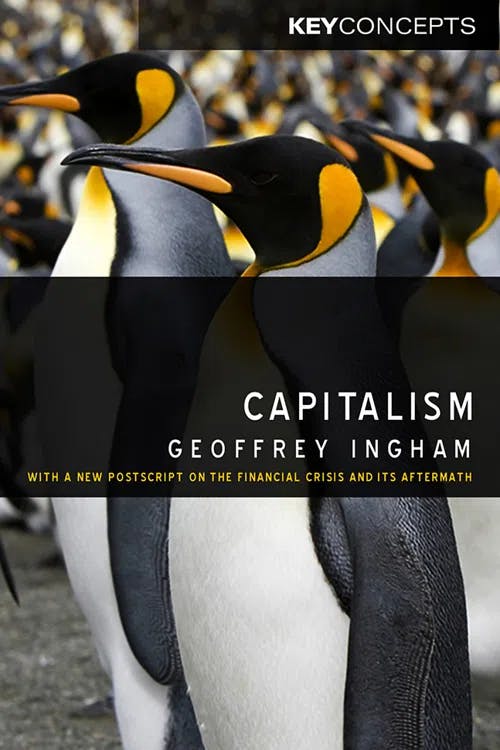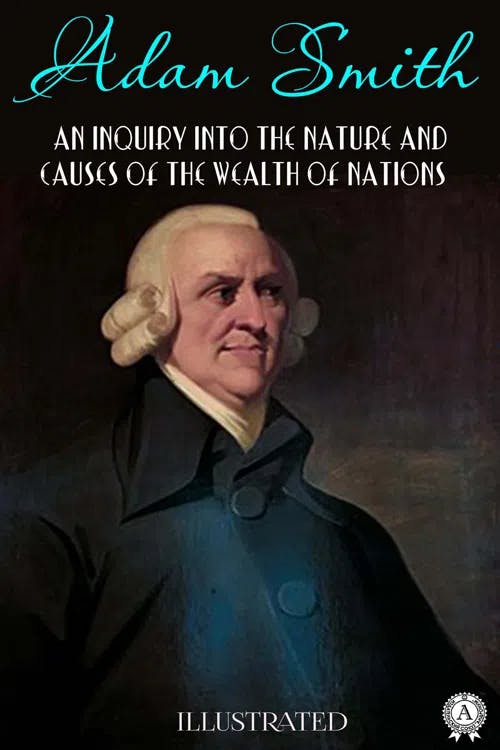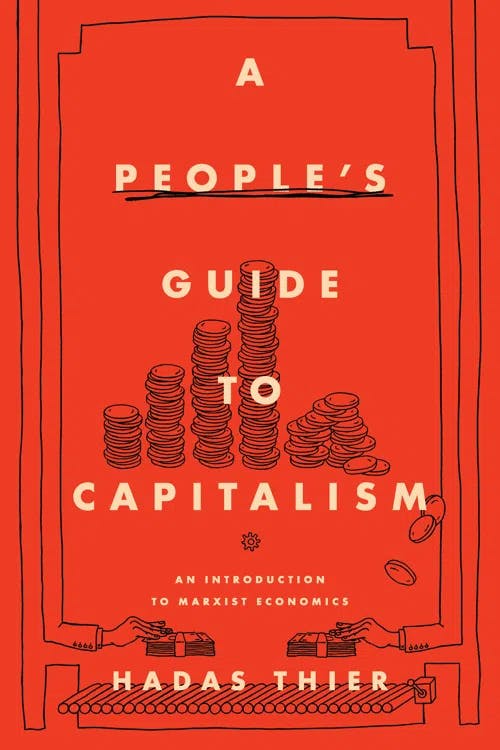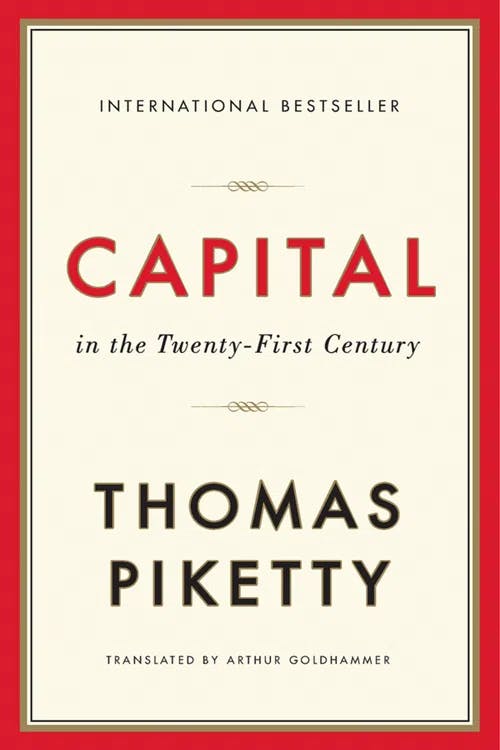What is Capitalism?
MA, Economics (Renmin University of China)
Date Published: 24.05.2023,
Last Updated: 14.11.2023
Share this article
Capitalism: the controversy
Capitalism is often seen as one of the defining features of the modern era. Typically classified as a type of economic system, the term indicates a system that organizes production and allocates resources through the market. But even the utterance of the word “capitalism” can spark heated debate, which begs the question: why is it so controversial? According to Nancy Fraser and Rahel Jaeggi in their book Capitalism: A Conversation in Critical Theory (2018),
There is not only the question of varieties of capitalism [...] coexisting in different societies at the same time. In addition, we are confronted with the historical development of different stages of capitalism. There are tremendous differences between earlier configurations of capitalism and present-day capitalism.
Nancy Fraser and Rahel Jaeggi
There is not only the question of varieties of capitalism [...] coexisting in different societies at the same time. In addition, we are confronted with the historical development of different stages of capitalism. There are tremendous differences between earlier configurations of capitalism and present-day capitalism.
In fact, rather than an economic system, they talk of a “capitalist society” and argue that “capitalism has social, economic, political dimensions that should be seen as standing in some kind of interconnected relation to each other.” Paul Bowles in his work on capitalism (2014) agrees that capitalism is systemic in nature, adding that,
Capitalism has [...] been subject to ‘non-naming’. It is common to find a variety of terms to describe the contemporary world: the ‘information age’, ‘post-industrial society’, the ‘free market economy’, the ‘global economy’, the ‘postmodern or post-colonial world’, the ‘consumer society’ or the ‘network society’, to name but some of them. In all of these terms, the word ‘capitalism’ is conspicuous by its absence; and yet, all of them implicitly presuppose a capitalist economy.
Paul Bowles
Capitalism has [...] been subject to ‘non-naming’. It is common to find a variety of terms to describe the contemporary world: the ‘information age’, ‘post-industrial society’, the ‘free market economy’, the ‘global economy’, the ‘postmodern or post-colonial world’, the ‘consumer society’ or the ‘network society’, to name but some of them. In all of these terms, the word ‘capitalism’ is conspicuous by its absence; and yet, all of them implicitly presuppose a capitalist economy.
The reason for this "non-naming" of capitalism, according to Jürgen Kocka (2016) is that the word capitalism “emerged as a term of critique”. He states that,
the term capitalism initially reflected above all [...] criticism of the class society, a usage that happened just as the term started to catch on in the middle of the nineteenth century, originally in French, then also in German beginning in the 1860s, and somewhat later in England.
Jürgen Kocka
the term capitalism initially reflected above all [...] criticism of the class society, a usage that happened just as the term started to catch on in the middle of the nineteenth century, originally in French, then also in German beginning in the 1860s, and somewhat later in England.
At that time, the term was closely linked to prominent Western intellectuals, scholars, and philosophers of the day attempting to explain the changes in the world around them, including the breakdown of feudal societies, the emergence of modern market economies, and the changes brought about by the Industrial Revolution (1760-1840).
This is particularly true of Karl Marx, who wrote extensively on the subject in the 1850s and 1860s. While he didn’t use the word "capitalism", his arguments centered around the "capitalist mode of production". Marx used this term to describe the capitalist system of private ownership of the means of production, particularly land, labor, and capital, by the dominant bourgeoisie class. He saw the capitalist system as a method of subjugation of the proletariat or working class, who were compelled to sell their labor power in order to make a living.
To Marx, the concept of capitalism reflected an exploitative relationship between the capitalist and working classes, wherein the owners of the means of production could extract additional value or “surplus value” from this arrangement, for which the working classes were not compensated. As Marx explains in his seminal work, Das Kapital (1867 [2012]),
The directing motive, the end and aim of capitalist production, is to extract the greatest possible amount of surplus-value, and consequently to exploit labor-power to the greatest possible extent. As the number of the cooperating laborers increases, so too does their resistance to the domination of capital, and with it, the necessity for capital to overcome this resistance by counter-pressure. The control exercised by the capitalist [...] is consequently rooted in the unavoidable antagonism between the exploiter and the living and laboring raw material he exploits.
Karl Marx
The directing motive, the end and aim of capitalist production, is to extract the greatest possible amount of surplus-value, and consequently to exploit labor-power to the greatest possible extent. As the number of the cooperating laborers increases, so too does their resistance to the domination of capital, and with it, the necessity for capital to overcome this resistance by counter-pressure. The control exercised by the capitalist [...] is consequently rooted in the unavoidable antagonism between the exploiter and the living and laboring raw material he exploits.
For more on the Marxist critique of capitalism, please see our article “What is Marxism?”. As for capitalism itself, there has been renewed debate on the underlying nature of capitalism as well as its consequences in recent years. This has been led by several factors, including the rise of China as a global economic power, the 2008 Global Financial Crisis and escalating issues around wealth inequalities and environmental degradation. Pivotal to understanding these debates, is an understanding of what constitutes a capitalist system at a fundamental level and how it came to be the primary mode of organization for many countries around the world.
The fundamental characteristics of a capitalist system
As stated above, many equate capitalism with a system based on a free market economy, and while scholars generally list the existence of markets as one of the fundamental components of capitalism, that is not enough as a definition in and of itself. As Fraser and Jaeggi (2018) explain, this is because there are different “varieties of capitalism”, which have emerged over time as capitalist systems have propagated across the world.
For example, among most capitalist systems there are different levels and modes of market freedom and regulation, as well as government intervention. At one end of the spectrum, market or laissez-faire capitalism indicates that governments play a minimal role in allocating resources and allow market forces to have free rein to organize economic activity (Bowles, 2014). At the other end, China’s current model is often called state capitalism (Hung and Chen, 2018), a market-based system, which is nevertheless governed by “powerful and frequent state intervention” and the dominance of state-owned enterprises.
Distinctions have also been made between early forms of "merchant capitalism", which arose during the 17th century (Bowles, 2014) and later forms, such as "financial capitalism", which considers the now prominent role of financial markets in the organization of economic behavior (Tridico, 2017). However, in order to define capitalism many have attempted to identify the key characteristics that underly all capitalist systems. For example, Geoffrey Ingham (2013) in his book Capitalism, posits the following,
we can identify three fundamental elements, or institutional clusters, of the capitalist economy:
A. monetary system for producing bank-credit money;
B. market exchange; and
C. private enterprise production of commodities.
Geoffrey Ingham
we can identify three fundamental elements, or institutional clusters, of the capitalist economy:
A. monetary system for producing bank-credit money;
B. market exchange; and
C. private enterprise production of commodities.
Others expand on this definition or emphasize other factors. For example, Kocka (2016) includes the existence of individual rights, particularly property rights, as essential for enabling “economic decisions in a relatively autonomous and decentralized way”. While Fraser and Jaeggi (Capitalism: A Conversation in Critical Theory, 2018), take a more Marxist slant, and focus on,
(1) a class division between owners and producers; (2) the institutionalized marketization and commodification of wage labor; (3) the dynamic of capital accumulation; and (4) market allocation of productive inputs and social surplus.
The history of capitalism
Definitions of capitalism are often influenced by the author’s interpretation of its history and development. Of course, how and why capitalism emerged is also much debated, but interpretations can be broadly grouped into two camps. On one side, there is a belief that capitalism came about through natural processes based on human instincts, particularly self-interest. While on the other side, there are those, including Marx, who did not see the emergence of capitalism as inevitable, but rather it was a violent process, brought about by the desire of the capitalist class for monetary profit (Thier, 2018).
The "natural" argument dates back to Adam Smith (1723-1790), one of the founding fathers of economics. In his classic work, An Inquiry into the Nature and Causes of the Wealth of Nations (1776 [2021]), he argued that the "wealth of nations", or the prosperity enjoyed by certain countries, was due a natural human inclination towards a division of labor, led by a desire and ability to enter into exchange transactions. He stated that,
This division of labour, from which so many advantages are derived, is not originally the effect of any human wisdom, which foresees and intends that general opulence to which it gives occasion. It is the necessary, though very slow and gradual consequence of a certain propensity in human nature which has in view no such extensive utility; the propensity to truck, barter, and exchange one thing for another.
Adam Smith
This division of labour, from which so many advantages are derived, is not originally the effect of any human wisdom, which foresees and intends that general opulence to which it gives occasion. It is the necessary, though very slow and gradual consequence of a certain propensity in human nature which has in view no such extensive utility; the propensity to truck, barter, and exchange one thing for another.
Critics of capitalism often dismiss the "natural" argument and focus on the historical factors that paved the way for capitalism to emerge. Thier (2018) points to the “Enclosure Movement”, a series of events, which ultimately removed peoples’ rights of access to and use of common land across the UK and other Western European countries. Thier argues that this left huge swathes of a previously feudal society without “means to maintain economic independence” and that, rather than freeing people from bondage, enclosure severed “the masses of people from access to land, tools, and resources” (2018). Capitalism, Thier argues,
created a new underclass of wageworkers—a class of people theoretically free to work where and how they pleased, but who would in practice be compelled—by economic necessity—to produce a surplus for someone else nonetheless.
Hadas Thier
created a new underclass of wageworkers—a class of people theoretically free to work where and how they pleased, but who would in practice be compelled—by economic necessity—to produce a surplus for someone else nonetheless.
Ultimately, both advocates, like Smith and critics, like Marx, saw capitalism as a system driven by the profit motive, but while Smith believed this system “harmonized individual interests and collective social welfare”, Marx believed that the system produced crises and inequality (Ingham, 2013).
The future of capitalism
The nature and future of capitalism has received renewed attention in recent decades and the phrase "crisis of capitalism" has become widespread. Why is this the case? As many argue, capitalism, globalization, and free market economics in the post-war era has generally reduced poverty and raised living standards across the globe. In an article published by McKinsey in 2020, entitled, “Rethinking the future of American capitalism”, James Manyika, Gary Pinkus, and Monique Tuin state that,
America’s brand of capitalism—the version that has been in place for the past half-century or so—has delivered unmatched economic growth and prosperity. GDP per capita has more than doubled over the past 50 years, while personal consumption expenditure per capita has almost tripled [...].
[...]
Rapid economic growth in emerging economies during the past 30 years has lifted a billion people out of poverty.
By "America’s brand of capitalism" the authors are referring to neoliberalism, a political and economic philosophy that arose in the 1960s and 1970s, championed by economists like Milton Friedman. Friedman not only argued that the type of free market capitalism prescribed by neoliberalists was the most efficient system in terms of the allocation of resources in an economy, he also believed that capitalism brought other benefits, namely that “capitalism is a necessary condition for political freedom” (Friedman, 1962 [2009]). Arguments in favor of neoliberalist policies are still prominent today, for example in debates around the extent to which markets, such as the markets for guns or drugs, should be regulated.
Nevertheless, the capitalist system is facing a lot of scrutiny. In a speech made by Arundhati Roy in 2011, she points out that “’the American way of life’…has resulted in four hundred people owning the wealth of half of the population of the United States” (Roy, 2014). Statistics such as these have led people to ask the question: do systems led by the profit motive allocate resources fairly across all segments of society? In his widely celebrated book, Capital in the Twenty-First Century (2017), Thomas Piketty looks at the historical data available from the last three centuries and concludes that the capitalist system does not allocate resources fairly. As he states,
Modern economic growth and the diffusion of knowledge have made it possible to avoid the Marxist apocalypse but have not modified the deep structures of capital and inequality—or in any case not as much as one might have imagined in the optimistic decades following World War II. When the rate of return on capital exceeds the rate of growth of output and income, as it did in the nineteenth century and seems quite likely to do again in the twenty-first, capitalism automatically generates arbitrary and unsustainable inequalities that radically undermine the meritocratic values on which democratic societies are based.
Thomas Piketty
Modern economic growth and the diffusion of knowledge have made it possible to avoid the Marxist apocalypse but have not modified the deep structures of capital and inequality—or in any case not as much as one might have imagined in the optimistic decades following World War II. When the rate of return on capital exceeds the rate of growth of output and income, as it did in the nineteenth century and seems quite likely to do again in the twenty-first, capitalism automatically generates arbitrary and unsustainable inequalities that radically undermine the meritocratic values on which democratic societies are based.
Piketty proposes the introduction of a progressive annual tax on capital as a solution to reducing inequality, essentially bringing the return on capital more in line with the rate of economic growth. Curbing capitalism’s excesses through tax and regulation is not a new idea. John Maynard Keyes argued just that back in the 1930s. He believed the capitalist system was inherently unstable due to speculative consumption and investment behavior driven by “animal spirits” rather than “mathematical expectation” and only governments could bring capitalism to heel. As we can see in Piketty’s analysis, government intervention as a solution has received renewed support in some quarters, particularly since the 2008 Global Financial Crisis.
Others take a more radical view and see the beginning of the end for capitalism. For example, Robert Albritton argues that we are in the early stages of a transition away from capitalism (Westra, Badeen and Albritton, 2014), however, he does state that this could play out over several centuries. One thing is clear from the majority of works on capitalism: an agreed definition is hard to find. Capitalism means different things, to different people, at different times. In the present moment, it has perhaps become more of a shorthand to think about the inequalities that pervade the early 21st century - between the rich and the poor, between the colonizer and the colonized, between the people and the planet. While this understanding is alluring, it is perhaps simplistic. Capitalism has evolved over the centuries and will likely continue to evolve. In his book, Saving Capitalism (2016), Richard Reich suggests that the “basic rules of capitalism are not written in stone. They are written and implemented by human beings” and therefore, can be changed.
Further reading on Perlego
The Protestant Ethic and the Spirit of Capitalism by Max Weber
The Economics and Sociology of Capitalism by Joseph A. Schumpeter, edited by Richard Swedberg
Postcapitalism by Raphael Sassower
The Age of Surveillance Capitalism by Shoshana Zuboff
Capitalism: The Story Behind the Word by Michael Sonenscher
Capitalism FAQs
What is capitalism in simple terms?
What is capitalism in simple terms?
What is a key criticism of capitalism?
What is a key criticism of capitalism?
What are the best books on capitalism?
What are the best books on capitalism?
Bibliography
Bowles, P. (2014) Capitalism. 2nd edn. Taylor and Francis. Available at: https://www.perlego.com/book/1556229/capitalism-pdf
Esping-Andersen, G. (2013) The Three Worlds of Welfare Capitalism. Polity Press. Available at: https://www.perlego.com/book/1535577/the-three-worlds-of-welfare-capitalism-pdf
Fraser, N. and Jaeggi, R. (2018) Capitalism. Polity Press. Available at: https://www.perlego.com/book/1536438/capitalism-a-conversation-in-critical-theory-pdf
Friedman, M. (2009) Capitalism and Freedom. The University of Chicago Press. Available at: https://www.perlego.com/book/1853344/capitalism-and-freedom-fortieth-anniversary-edition-pdf
Hung, J. and Chen, Y. (2018) The State of China’s State Capitalism. Springer Singapore. Available at: https://www.perlego.com/book/3485821/the-state-of-chinas-state-capitalism-evidence-of-its-successes-and-pitfalls-pdf
Ingham, G. (2013) Capitalism. Polity Press. Available at: https://www.perlego.com/book/1535274/capitalism-with-a-new-postscript-on-the-financial-crisis-and-its-aftermath-pdf
Kocka, J. (2016) Capitalism. Princeton University Press. Available at: https://www.perlego.com/book/738723/capitalism-a-short-history-pdf
Manyika, J., Pinkus, G., and Tuin, M. (2020) “Rethinking the future of American capitalism”. McKinsey Global Institute. Available at: https://www.mckinsey.com/featured-insights/long-term-capitalism/rethinking-the-future-of-american-capitalism
Marx, K. (2012) Das Kapital. Gateway Editions. Available at: https://www.perlego.com/book/784600/das-kapital-a-critique-of-political-economy-pdf
Piketty, T. (2017) Capital in the Twenty-First Century. Harvard University Press. Available at: https://www.perlego.com/book/1133197/capital-in-the-twentyfirst-century-pdf
Reich, R. (2016) Saving Capitalism. Icon Books. Available at: https://www.perlego.com/book/569539/saving-capitalism-for-the-many-not-the-few-pdf
Roy, A. (2014) Capitalism: A Ghost Story. Verso UK. Available at: https://www.perlego.com/book/731067/capitalism-a-ghost-story-pdf
Smith, A. and Icarsus (2021) An Inquiry into the Nature and Causes of the Wealth of Nations. Icarsus. Available at: https://www.perlego.com/book/2628240/wealth-of-nations-pdf
Thier, H. (2018) A People’s Guide to Capitalism. Haymarket Books. Available at: https://www.perlego.com/book/1637090/a-peoples-guide-to-capitalism-an-introduction-to-marxist-economics-pdf
Tridico, P. (2017) Inequality in Financial Capitalism. Taylor and Francis. Available at: https://www.perlego.com/book/1486027/inequality-in-financial-capitalism-pdf
Westra, R., Badeen, D. and Albritton, R. (2014) The Future of Capitalism After the Financial Crisis. Taylor and Francis. Available at: https://www.perlego.com/book/715802/the-future-of-capitalism-after-the-financial-crisis-pdf
MA, Economics (Renmin University of China)
Megan Copeland spent over 10 years living and working in one of the most interesting economies in the world, China. She has a Master’s degree in Economics and a Bachelor’s Degree in Chinese Studies. Her areas of interest include economic history and behavioural economics. She is now a writer and Chinese to English translator based in London. She would recommend students of economics to listen to the Planet Money and Freakonomics podcasts for great examples of how economic theory is applied in reality.

